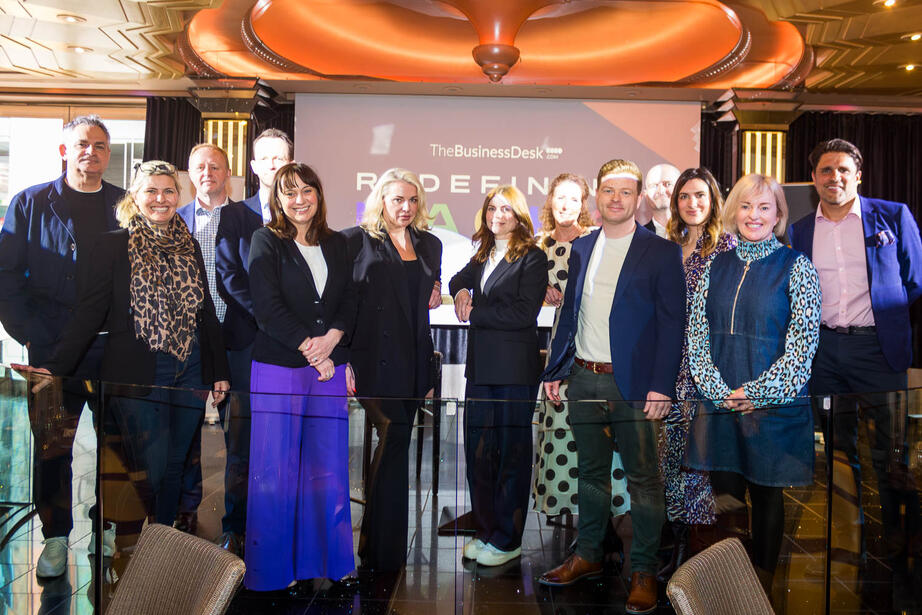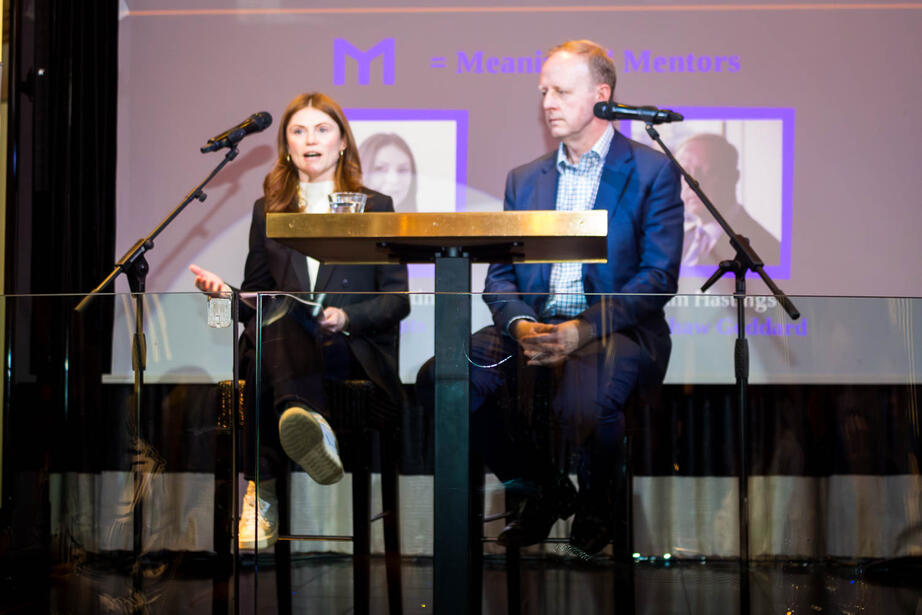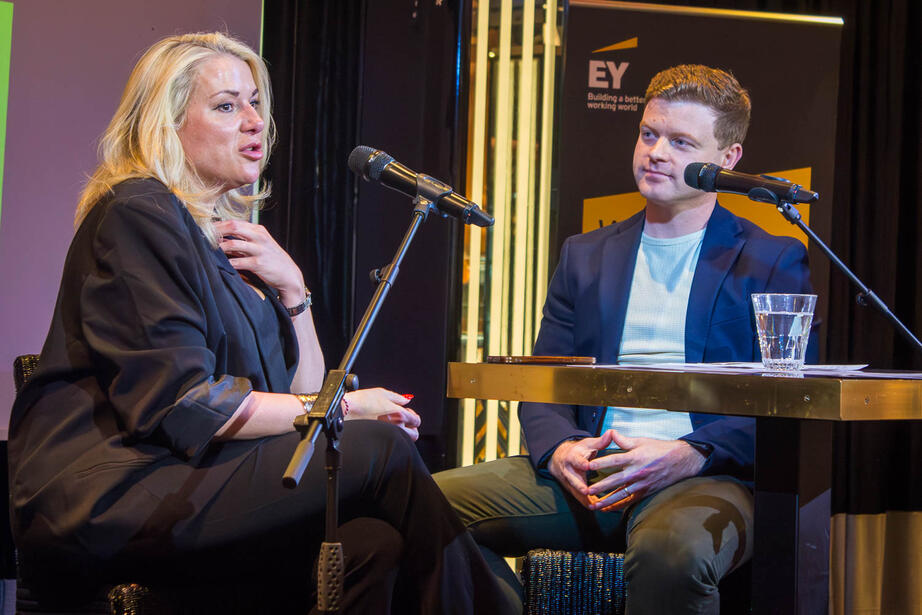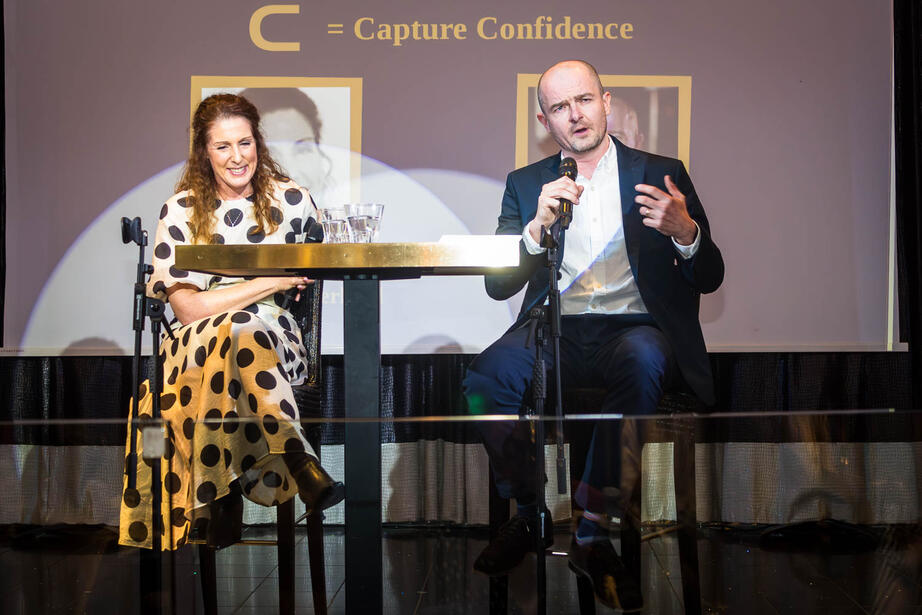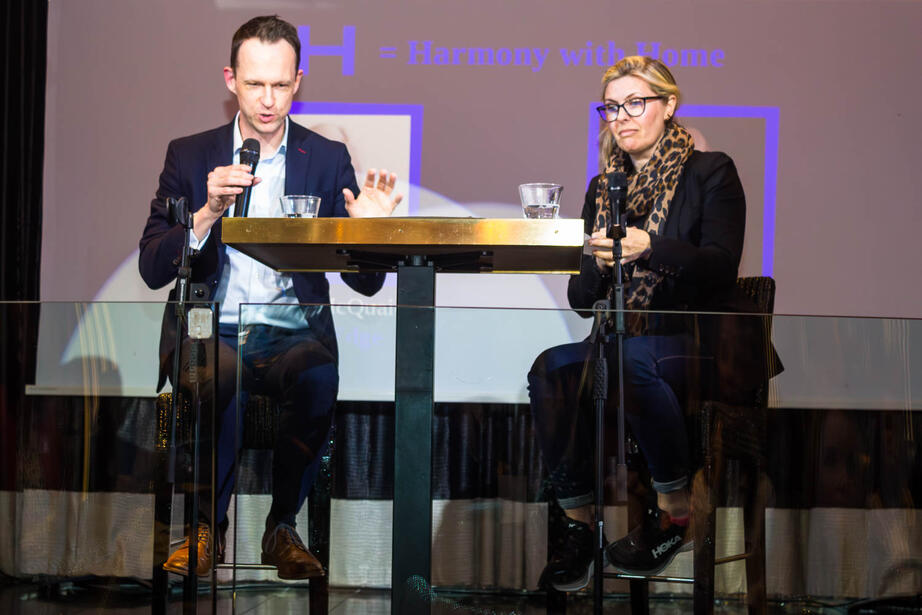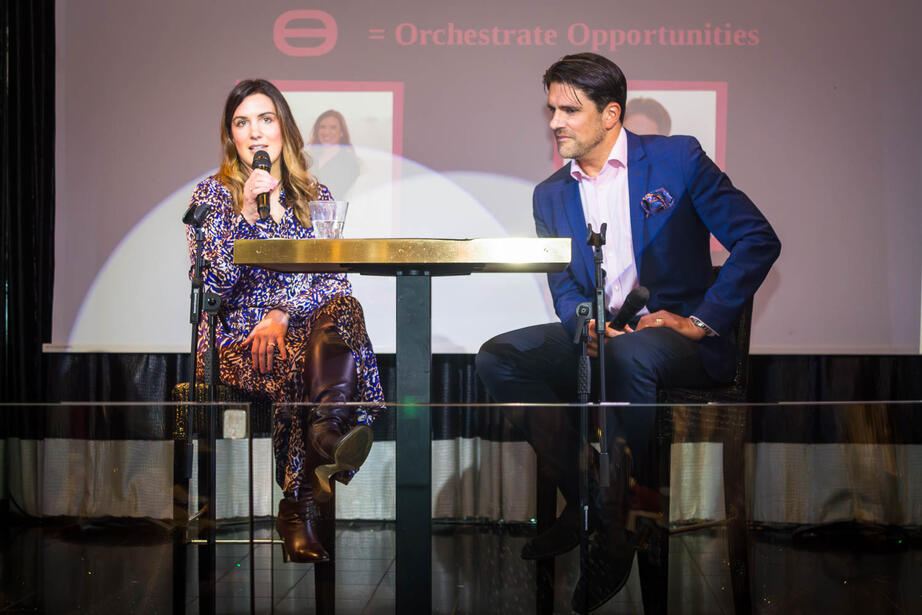How MACHO men empower women
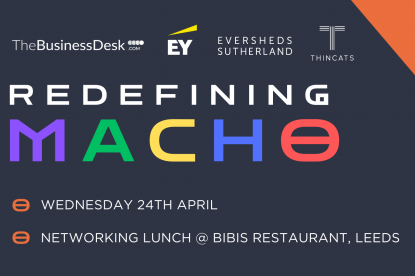
Around 100 people – men and women – attended the Redefining MACHO lunch on Wednesday and learn what issues women face in their careers and how men can help.
The programme, sponsored by EY, ThinCats and Eversheds Sutherland, is the brainchild of EY corporate tax partner Rebecca Rennison, who said she knew what it felt like to be the only woman in the room, having spent 15 years in investment banking in America as the only woman among 78 men.
She outlined the five pillars of MACHO, five things men (and women) could do to help women reach senior roles and help improve equality at the higher levels of organisations: meaningful mentoring, amplifying awareness, capturing confidence, harmony with home and orchestrating opportunities.
Each of the pillars featured a 15-minute talk by two senior professionals, a man and a women, to give perspective and ideas.
The programme, she explained, was inspired by Simon Dixon, senior director of business development at ThinCats, asking her what he could do to help.
“I sat down and I wrote down very quickly – I remember it distinctly, Saturday morning, cup of coffee in hand – five things that would have made a difference.”
Dixon, who co-hosted the event with Rennison, added, “Allyship is about saying the battle is better won together. I’m going to stand next to you and we are going to fight this battle and we are going to win together.”
Meaningful Mentoring
Michelle Heptinstall, director of business development sponsors at ThinCats, and Adam Hastings, partner at Addleshaw Goddard, discussed the role of mentoring.
Heptinstall said for mentoring to be effective and valuable, both parties should understand the purpose and objectives of it. “I’m not saying there’s a right or wrong way. Mentoring takes many forms for different people. But if you don’t have a common goal, there’s not really a purpose.”
Adam spoke of a successful informal mentoring relationship that evolved naturally with a female colleague. “It became more about me recognising the challenges that were facing her in her career development versus a man at an equivalent level, and trying to more positively support her in a way that allowed her to catch up with some of her male colleagues.”
Amplify Awareness
Being aware of some of the issues women face is key for male allies who want to help women in their careers.
Sarah Tulip, former head of northern delivery at Cognizant, and Ben Coggin, transaction diligence partner at EY, discussed the ways in which women can be overlooked or sidelined in a meeting or in the office.
Getting coffee, arranging a lunch or the Christmas party are jobs often seen as women’s roles.
“I don’t never drink coffee or tea in an office, so I’ve never been the tea of coffee girl in my career,” said Sarah. “When I go into a meeting room I always take the best chair. I don’t care what the chair is. I’ll be in the middle, or I’ll sit next to the chief exec or whatever. I’ll take the best because I have something to say.”
“On the flip side of that, if you’re a man, go and get the coffee,” added Ben. “I’m the coffee boy for my team. I spend an extortionate amount of money in Starbucks.”
That illustrated another key thing to be aware of, Sarah added. “If you’re in the majority, and you’re the power holder, you’re the person who can drive change.”
Capture Confidence
Chris Boyes, investor at BGF, highlighted a US study of 25,000 professional services people in 2022 that found men heard the word “ambitious” twice as often as women in their annual appraisal, and “confident” 50% more. Women heard “friendly” 60% more than men, and “helpful” 80% more than men.
“Never, in the 20 years I’ve worked in corporate finance have I been called friendly or helpful in an appraisal,” he said.
Amanda Portland, M&A partner at Eversheds Sutherland, pointed out that although imposter syndrome affects everyone, it affected more women than men.
“That has a resulting impact on confidence and career progression,” she said. “Women are just not as likely to put themselves forward. If we think about putting yourself forward for a new role, or a promotion, maybe even wanting to take a lead on negotiations or front of pitch, women might not do that. But it doesn’t mean they won’t be delighted if they were asked to do it.”
She added, “Generating opportunities for women is extremely powerful – and it’s actually more powerful of those opportunities are given by men than by women.”
Harmony with Home
“I think we should get it right out there and say it’s so hard when you want to be a successful, ambitious achiever, and yet you want to be a good parent, family member, friend, partner in life,” said Nicola McQuaid, investment manager at NorthEdge.
She advised learning how to say no. “That horrible phrase, work-life balance, it just isn’t balanced. But learn to course-correct, recognise when you’ve gone off track for a bit and come back in line.”
Andrew Ross, investment partner at Endless, said he had to restructure his working week when he and his partner separated so that he could make quality time for his daughters.
Both advised prioritising time ruthlessly.
“At home and at work, be there for the moments that matter,” said Ross. “You don’t always have to be in every meeting at every location in person. My ego might say that I want to be, but equally, decide on a week by week, month by month basis what are the things that are going to make a difference to me delivering at work and to me being the best father that I can be? But it’s not a one-time fix.”
Orchestrating Opportunities
Nik Pratap, managing partner at Pratap Partnership, said man listen to other man more than they do to women. “The trajectory of gender equality will only change when men talk to tother men. Men have the ability to create a movement of positive ownership, which will prompt others to join.
“There is still a male prejudice. There are certain people who will want to speak to me because I’m the managing partner, there are certain people who will want to talk to me because I’m a man. So my role is very, very simple. I take that first call, and then introduce one of my fantastic colleagues.”
Jessica Armstrong, head of professional services sector coverage at Lloyds Banking Group, said some organisations were becoming bolder, and holding themselves accountable through KPIs in their ESG strategy.
“There’s a lot of talent programmes out there, some with better degrees of success than others,” she said. “The best have a really clear objective.
“Another area I think that has been really successful, lawyers have just launched a sponsorship programme. The idea of a sponsor is quite different to that of a mentor. It’s for an individual to act as your advocate and your ambassador, to talk about your successes and your skills and strengths in rooms you may not be in. That, I think, is really powerful to open doors.
“It doesn’t have to be a formal programme. You can be a sponsor informally.”
Creating ripples
Closing the presentations, Rennison said she often passed the Rise Up, Women statue of Emmeline Pankhurst outside EY’s Manchester office feeling apologetic at so little progress over the past 100 years.
“Perhaps after today she’s going to give me a bit of a nod. She’s going to say, ‘All right, now we’re talking. Now we’re actually trying to drive a little bit of change.’”
Dixon, in his closing remarks, said, “The majority of us don’t have an intention to be difficult or demanding or mean spirited. It’s about awareness. Let’s take it in that spirit.
“I hope that this creates a ripple effect. Take it back to your organisations and create that ripple effect. Find those people who want to be allies, find the people who want to be mentors, find those people who are happy to sponsor you and help you find an opportunity in your business.
“We want to make something that’s sustainable.”

